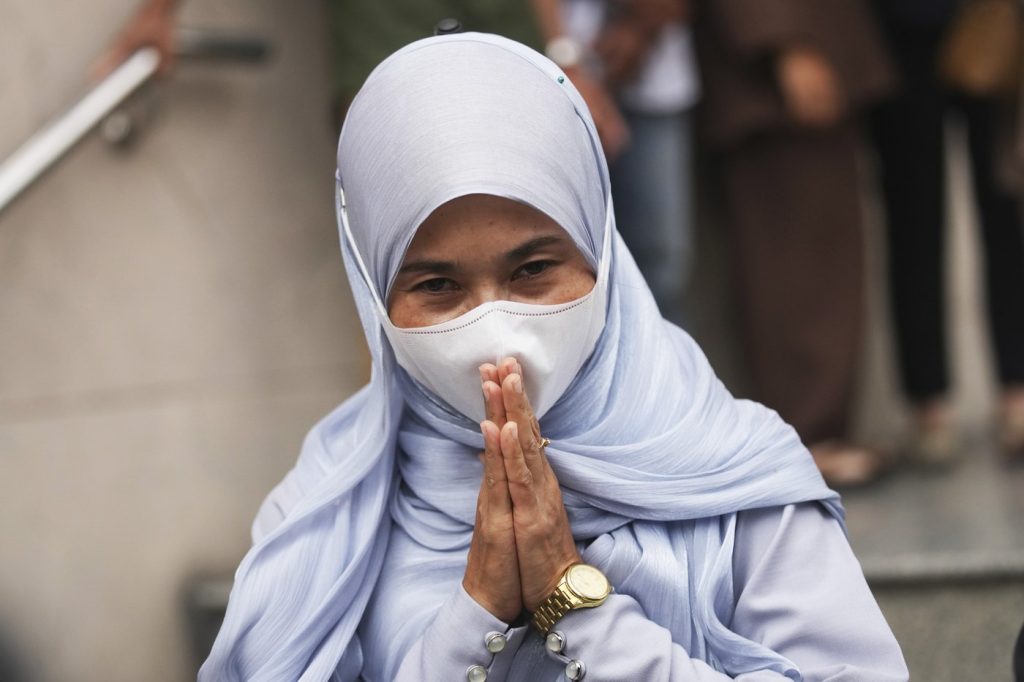Court drops all charges against a Thai woman in a 2015 bombing at a Bangkok shrine that killed 20

BANGKOK (AP) — A court in Thailand on Thursday acquitted a Thai woman who had been charged with involvement in a 2015 bombing at a shrine in Bangkok that killed 20 people and injured 120.
Wanna Suansan was one of three people apprehended out of 17 suspects who authorities said were responsible for the blast at Erawan Shrine, a popular tourist destination, particularly for visitors from China. The Bangkok Southern Criminal Court ruled that there was not enough evidence to link her to the bombing.
The two others being tried separately are ethnic Uyghurs, a Muslim minority in China that has suffered repression. All three were charged with a variety of offenses, including murder, attempted murder and illegal possession of explosive materials.
Advertisement
The two Uyghurs were arrested in 2015 shortly after the bombing on Aug. 17. Wanna was arrested later when she voluntarily returned to Thailand from Turkey in 2017 to turn herself in when she was named as a suspect.
Thai authorities have said the bombing was revenge by a people-smuggling gang whose activities had been disrupted by the police. Thailand cracked down on human traffickers earlier in 2015 after abandoned camps for Rohingyas fleeing persecution in Myanmar and economic migrants from Bangladesh were found in the jungles along the Thai-Malaysia border.
However, some analysts suspect the bombing was the work of Uyghur separatists angry that Thailand had forcibly repatriated scores of Uyghurs to China in July that year. Many Uyghurs try to escape persecution and tight control in China with the help of professional smugglers. The shrine’s popularity among Chinese tourists lent support to the theory that the bombing had a political element.
While the two other suspects, Yusufu Mieraili and Bilal Mohammad, were allegedly linked by video, DNA and other evidence to the bombing, the case against Wanna was more circumstantial.
Wanna, 36, was accused of leasing accommodation for the alleged bombers. Police said they found gunpowder, fertilizer and other bomb-making materials in an apartment in outer Bangkok that was leased under Wanna’s name.
Advertisement
The judge on Thursday said there was not enough evidence indicating that Wanna had committed a crime as she was charged.
She said prosecutors could not provide evidence that Wanna was present at the site of the bombing, had brought the other suspects there or helped them escape. There was also no evidence that she had contact with them or helped them acquire explosive materials that were found in the apartment, which she was alleged to have rented for the suspects, the judge said.
She said it might have been possible that Wanna helped find accommodation for friends or acquaintances of her husband, who is Turkish, but prosecutors could not prove what kind of relationship her husband might have had with the other suspects. Her husband, not in custody, is another suspect in the case.
Some of the suspects are Turks, with whom Uyghurs share ethnic bonds.
“Today the court acquitted the charges. I’m very happy. I’d like to thank the court, because I had been waiting for this day for seven years since I returned,” Wanna said after the ruling.
Advertisement
She said that during that time, she felt discouraged because “it’s like I didn’t get any justice, and it also damaged my family.”
Mieraili and Bilal, accused of being the main bombers, have faced repeated delays in their trial because of difficulties in finding suitable translators. Their lawyer, Chuchart Kanpai, said Thursday that their case was still at the stage of examining witnesses, and the next court date is scheduled for March.
The two men pleaded not guilty when their trial began in 2016 and said they suffered mistreatment and torture in jail after their arrests. Police said they believe Mieraili detonated the bomb minutes after a backpack containing the device was allegedly left at the shrine by Bilal, who is also known as Adem Karadag.
Jintamas Saksornchai, The Associated Press
Advertisement